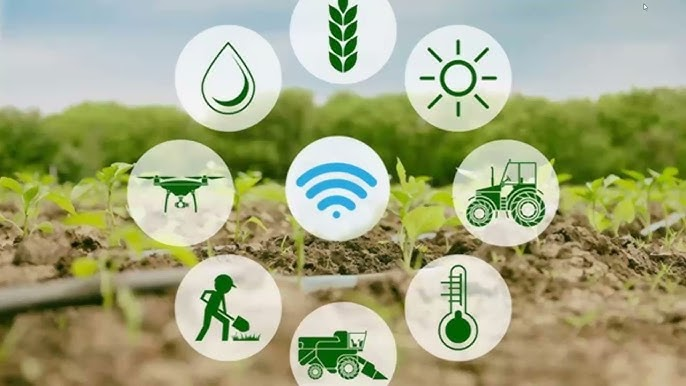Nigeria, a country with vast agricultural potential, has been embracing the use of Information and Communication Technology (ICT) to transform its agricultural sector. Agricultural ICT, also known as e-agriculture, involves the application of ICT tools and services to support agricultural development, improve productivity, and enhance the livelihoods of farmers. In Nigeria, agricultural ICT has the potential to revolutionize the sector, but its adoption is still in its infancy, and several challenges need to be addressed.
Opportunities
- Improved Access to Information: ICTs can provide farmers with access to timely and relevant information on best practices, market trends, and weather forecasts, enabling them to make informed decisions.
- Increased Efficiency: ICTs can streamline agricultural processes, reducing costs and improving productivity, particularly in areas such as supply chain management and market access.
- Enhanced Market Access: ICTs can connect farmers to markets, enabling them to sell their products more efficiently and at better prices.
- Decision Support Systems: ICTs can provide farmers with decision support systems, enabling them to make data-driven decisions on crop management, soil health, and pest management.
- Capacity Building: ICTs can facilitate training and capacity building for farmers, extension agents, and other stakeholders, enhancing their skills and knowledge.
Challenges
- Infrastructure: Nigeria’s agricultural ICT sector is hindered by inadequate infrastructure, including poor internet connectivity, limited access to electricity, and inadequate ICT equipment.
- Digital Literacy: Many farmers in Nigeria lack the digital literacy skills needed to effectively utilize ICT tools and services.
- Content and Language: Agricultural ICT content is often not tailored to the needs of Nigerian farmers, and language barriers can limit its effectiveness.
- Funding: Agricultural ICT initiatives in Nigeria often face funding constraints, limiting their scalability and sustainability.
- Policy and Regulation: Nigeria’s policy and regulatory framework for agricultural ICT is still evolving, and there is a need for clearer guidelines and standards.
Examples of Agricultural ICT Initiatives in Nigeria
- e-Farm: A mobile-based platform providing farmers with access to extension services, market information, and financial services.
- Farmcrowdy: A digital platform connecting farmers to markets, finance, and extension services.
- Hello Tractor: A platform providing farmers with access to tractor services, improving agricultural productivity and efficiency.
Way Forward
- Invest in Infrastructure: Government and private sector investments in ICT infrastructure, including internet connectivity and electricity, are crucial for the growth of agricultural ICT in Nigeria.
- Digital Literacy Training: Training programs for farmers, extension agents, and other stakeholders can enhance digital literacy and improve the effectiveness of agricultural ICT initiatives.
- Content Development: Developing context-specific content that meets the needs of Nigerian farmers can improve the adoption and impact of agricultural ICT initiatives.
- Public-Private Partnerships: Collaboration between government, private sector, and civil society organizations can facilitate the development and scaling of agricultural ICT initiatives.
- Policy and Regulation: A supportive policy and regulatory framework can enable the growth of agricultural ICT in Nigeria, ensuring that initiatives are scalable, sustainable, and effective.
In conclusion, agricultural ICT has the potential to transform Nigeria’s agricultural sector, improving productivity, efficiency, and the livelihoods of farmers. However, addressing the challenges facing agricultural ICT adoption in Nigeria is crucial for its success. With investments in infrastructure, digital literacy training, content development, public-private partnerships, and a supportive policy framework, Nigeria can harness the power of ICT to revolutionize its agricultural sector.

